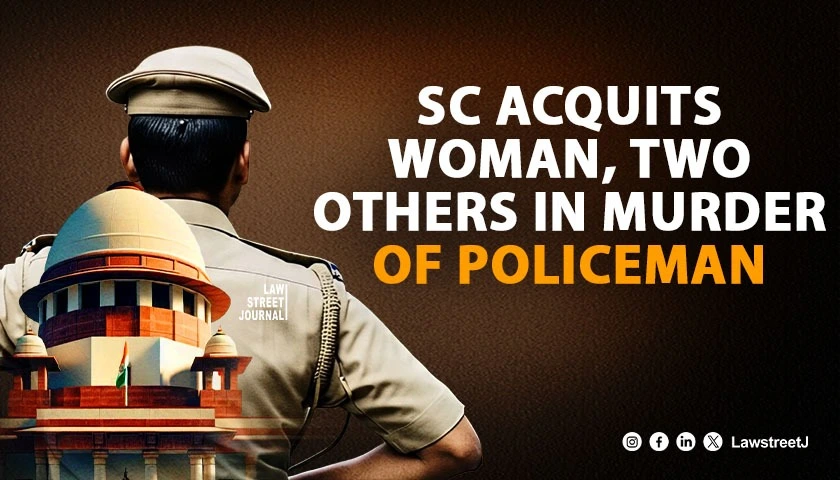NEW DELHI: The Supreme Court has set aside conviction of the wife of a policeman, his brother and brother-in-law in the 2006 murder of another policeman committed allegedly after being angered with persistent demands by the deceased over repayment of Rs one lakh loan.
A bench of Justices K V Vishwanathan and K Vinod Chandran discarded the confession of the woman made before the police after the crime.
The court allowed the appeal filed by Nagamma alias Nagarathna and two others against the Karnataka High Court's judgment which affirmed the findings of the trial court on conviction and sentence of life term to them.
It held the extra judicial confessions and the context in which they were made, within the police station cannot at all be relied upon.
The prosecution alleged on the night of March 10, 2006, Nagamma called the deceased for repayment of the loan and hacked him to death with the two other accused, after making him immobile by throwing chilli powder. After sunrise, she went directly to the police station and confessed to the SHO about the crime and apprised him of the presence of the dead body in her house.
The trial court acquitted the policeman due to his plea of alibi as he was on duty in another police station but held his wife and two others guilty.
The appellants' counsel C B Gururaj, submitted when one of the accused is acquitted, it should inure to the benefit of the others also.
Karnataka's Additional Advocate General Nishanth Patil contended the dead body was found in the house of the accused at her instance and there was no explanation by her. The motive was proved, and the extra judicial confessions further established the crime. The recovery of weapon also provided a link in the chain of circumstances.
In its judgment, the bench said, the confession made to the SHO, overheard by the Sentry of the police station, has to be completely eschewed under Section 25 of the Evidence Act.
It also said, the confession made to the wife of the deceased and police constable; who arrived at the police station in the status of the neighbour of the deceased, also has to be eschewed under Section 26.
On the motive, the bench said, "Absence of motive is not an imperative circumstance to arrive at a conviction, in a case where there is ocular evidence. The role of motive is not very significant even when circumstances otherwise form an unbreakable chain. Motive only provides another link, and the absence of motive is a factor that weighs in favour of the accused."
While going through the facts of the matter, the bench said the motive projected and the crime itself has not at all been proved in the case.
"There is no circumstance leading to the culpability of the accused. The presence of the dead body in the house of the accused is also under a cloud and in any event, that, with the absence of a proper explanation cannot by itself bring home a conviction," the bench said.
The court pointed out it was the case of the prosecution that the deceased reached the house of the accused at around 10 pm while the death was confirmed as having occurred at 2 pm.
"What happened in the interregnum is not clear and, there is a suspicion as to the genesis and origin of the crime which compounds the reasonable doubt regarding the prosecution case," the bench said.
The court found the presence of the dead body in the house of the accused stood totally discredited.
The brother-in-law of the deceased, categorically stated that he saw the dead body at the hospital and not at the house, it pointed out.
The court also noted two eyewitnesses (alleged tenants of the accused) turned completely hostile.
"We are at a loss to understand how the High Court and the trial court made an observation that though they were declared hostile, there was credible material in their evidence pointing to the culpability of the accused," the bench said.
The court also held there can be no reliance placed on the recovery based on the sketchy evidence.
"Undisputably, the case is one of circumstantial evidence which is treated as proved only when there is a complete chain of circumstances, comprising cogent and reliable material, providing an unbreakable link, leading only to the culpability of the accused and bringing forth the hypothesis only of guilt and not leading to any reasonable doubt as to the guilt or otherwise of the accused," the bench said.
Disclaimer: This content is produced and published by LawStreet Journal Media for informational purposes only and does not constitute legal advice. The views expressed are independent of any legal practice of the individuals involved.

















